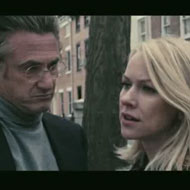
There were so few U.S. films at Cannes this year that patriots were hoping that Doug Liman’s Fair Game, which tells the story of outed spy Valerie Plame, would be good enough to make America proud. The film had added scrutiny because it’s the festival’s second-most star-studded film (after non-competition entry Wall Street 2), with Naomi Watts as Plame and Sean Penn as her husband, Joe Wilson. But unless the Palmes d’Or is awarded to make a political statement, Fair Game is not looking like it’s in the game after its middling premiere.
Director Doug Liman (Swingers, Mr. and Mrs. Smith) does what he can to keep the timeline moving forward snappily; the movie confidently reenacts Vice-President Dick Cheney’s attempts to discredit Wilson’s critique of the government’s trumped-up “evidence” against Iraq. But Liman can’t surmount the big problem, which is that we all know how the story ends. For instance, when Plame nervously looks over her shoulder, worried that an assassin lurks in the bushes, it’s a non-starter, since you know no one’s there. (Or at least no one with a working gun.) The film tells us little that we don’t already know and makes us feel even less.
While Plame’s life is utterly fascinating, she makes a strange sort of cinematic protagonist; she stays quiet and more or less just endures the controversy for much of the movie, while her resentment of her husband grows with each of his grandstanding televised appearances. Both Penn and Watts have been better, in roles that gave them more fully formed characters. Here they each play a single trait: Watts is nobly conflicted; Wilson is a blowhard. Confoundingly, the preeminent tension in the film becomes their marriage: Can Plame forgive her husband’s love of the spotlight? Can they turn this debacle into a positive? The really interesting stuff would seem to be happening a few miles away, in the vice-president’s office — and we get almost no real sense of what is going on there. Cheney and Libby became bogeymen in the public imagination and they’re creeps in this film. They only exist in brief, evil scenes that serve only to practically push the plot forward. Some will say that Fair Game will help enlighten people who know nothing of the Plame-Wilson affair, but with a movie that feels this thin, will it really move them to care?

